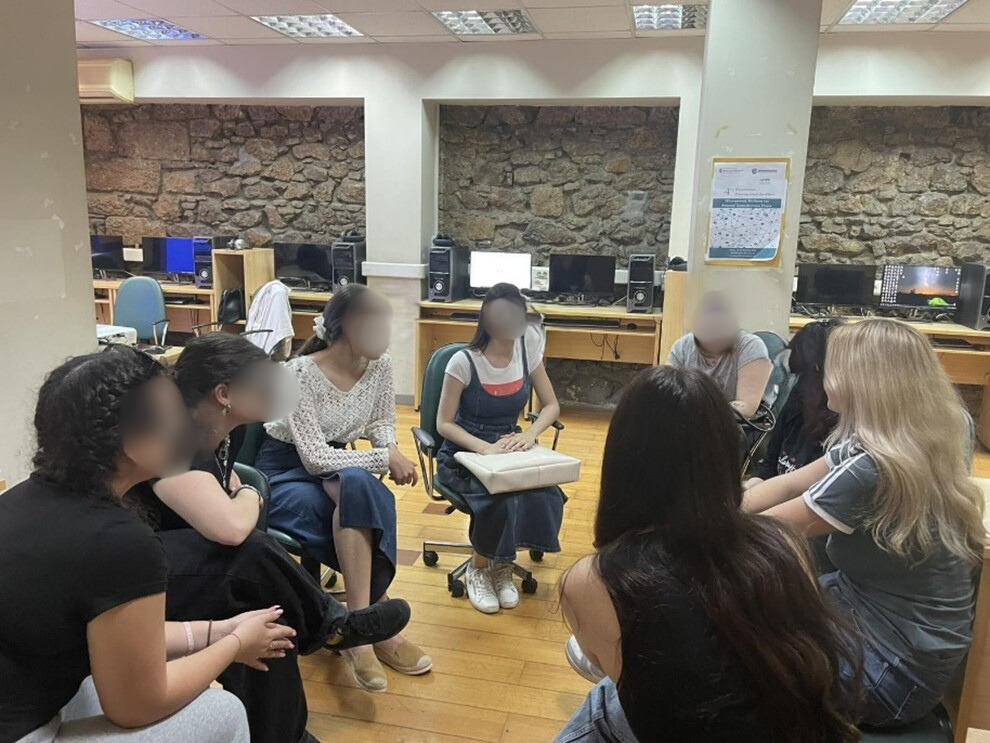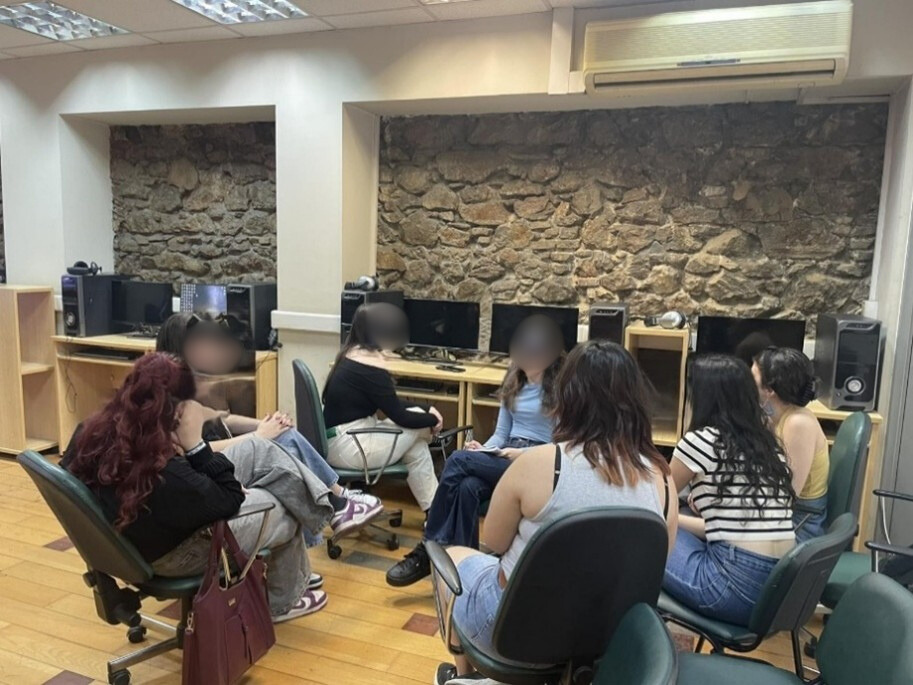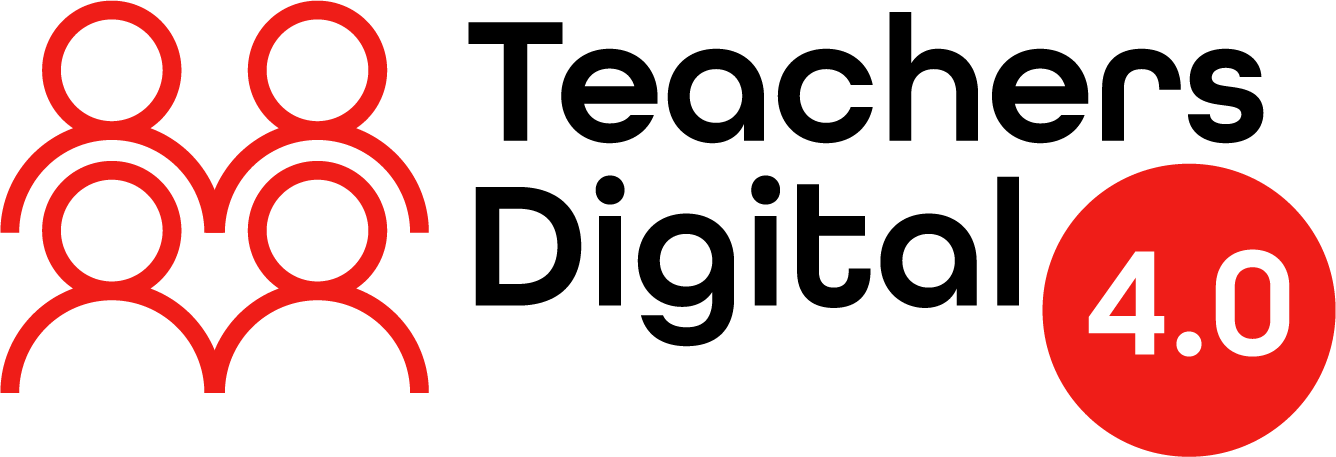The Teachers 4.0 project empowers pre-service teachers at the National and Kapodistrian University of Athens to confront disinformation, foster active engagement, and build the skills they need for the digital age.
Why This Course Matters
In today’s digital world, information flows faster than ever before. Alongside opportunities for access and learning, new risks emerge fake news, disinformation, and manipulation. Teachers have a crucial role to play in preparing the next generation to navigate this complex environment.
As part of the Erasmus+ project Teachers 4.0 Digital Age, the Department of Pedagogy and Primary Education of the NKUA piloted the course curriculum, developed collaboratively by the project’s partners. Its focus: empowering future teachers with knowledge, skills, and confidence to tackle disinformation and promote critical digital literacy.
What makes the story compelling? Of course, not only the curriculum itself, but also the voices of the students who participated.
What did they highlight from their experience?
- Participation and Engagement
Students described the course as different from anything they had experienced before.
“It wasn’t just another lecture. We were invited to participate, to react, to think out loud.”
Instead of listening passively, they became active explorers of how disinformation spreads. The topic immediately felt relevant to their own lives: many admitted they had underestimated how often disinformation shaped their online environment.
“I realised that fake news is not only something you see in politics or the media. It is everywhere—even in small everyday stories we share.”
This strong engagement set the tone for a course that was not about memorization, but about transformation.
- Active Learning and Critical Reflection
Workshops, case studies, and hands-on activities pushed students to think beyond surface-level understanding. They examined real-life examples of fake news, phishing, trolling, dissected how false narratives are constructed, and debated why people believe them.
“Instead of just receiving information, we had to build our own arguments and defend them. That process really changed how I think about news online.”
Through this process, students developed not only technical skills but also their self-awareness and critical reflection.
- Interaction and Collaboration
For many participants, the group work and discussions were the most rewarding part. Working together revealed how differently people perceive the same piece of information—and why dialogue is so important.
“Listening to my peers made me realise that disinformation is not only a personal issue, but a collective challenge.”
This collaborative spirit reflects the reality of teaching: building resilient, critical classrooms requires teamwork and dialogue.

- Understanding the Digital Ecosystem
One of the most eye-opening aspects of the course was exploring how the digital ecosystem itself operates—algorithms, echo chambers, filter bubbles.
“I had heard about algorithms before, but I didn’t realise how much they shape my everyday choices online.”
“It’s not just about lies versus truth. It’s about how digital systems feed us what we want to hear—and how dangerous that can be.”
Recognizing the structure of the digital ecosystem helped students see their role not only as future teachers but also as mediators who can explain these dynamics to children.
- Building Skills for Evaluation and Resilience
By the end of the course, students reported feeling more capable of:
- Fact-checking and verifying information.
- Comparing multiple sources.
- Spotting manipulation techniques.
- Reflecting on their own biases.
“I learned not only how to spot disinformation, but also how to question my own assumptions.”
Such skills are not only vital for their professional role as teachers but also for their personal resilience as citizens in an information-saturated world.
European Perspective
The Teachers 4.0 course is part of a broader European effort to strengthen digital and media literacy. Both the Digital Education Action Plan (2021–2027) and the European Democracy Action Plan highlight these skills as key priorities for the resilience of democratic societies.
Developed collaboratively by the project partners, the course is now being implemented across different European contexts. Each institution adapts it to its own educational reality, while sharing experiences and best practices with the consortium.
In this way, the Teachers 4.0 project not only supports the training of pre-service teachers but also contributes to the shared European vision of equipping all citizens with the tools to resist disinformation and promote digital literacy.

The experiences of the students show the transformative potential of this initiative. It is not only about academic training, but also about shaping values, attitudes, and a sense of responsibility.
The Teachers 4.0 project does not simply train teachers – it helps shape responsible citizens for the digital age.






